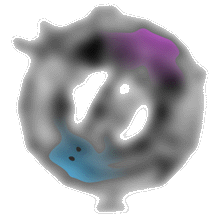EUROPEAN ENVIRONMENTAL TRIBUNAL
an active exercise of planetary citizenship

|
EUROPEAN ENVIRONMENTAL TRIBUNAL an active exercise of planetary citizenship |  |
| how it happened |
In the early 1990s I became a founding member of the European Environmental Tribunal, in Brussels. I think I was the only one who was not a judge at that moment. The first aim of that institution was to be something coordinating the United Nations' acts. Dr. Dörte Fouquet, the founder and first President, a prominent lawyer, soon asked me to collaborated more actively with the institution. I told her that the only way to do it would be to fight against judgements. She laughed and asked me why. I told her I was against bureaucracy and that I considered the human being as the essence of what we vulgarly call environment. I also added that we already had too many bureaucratic institutions to judge in this world, and what it was much more important, in my point of view, was consciousness, knowledge, illumination. She embraced me and said: Bravo! Four years later, the EET was full of papers and I was invited to become a member of the board. I accepted with one condition: my function should be that one to criticize everything, unveiling contradictions and nonsense attitudes. I was accepted. My world was, as what it still is, much more oriented to the ideas of people like John Cage, Richard Buckminster Fuller or Paolo Soleri. In 1997 I was nominated president of the institution with powers to change everything. The first thing I did was to eliminate the figure of "president" and to establish a round table. Also, the EET started to be oriented to the environment as an anthropological issue, involving all disciplines of knowledge; the word "European" was assumed as something much beyond the European region, as a conceptual condition of different languages, cultures and ethos living together and in peace; and the concept of tribunal started to be not a place of judgments, but yes as a free forum of ideas. Then, we moved to London and some time later we became a totally informal organization. The most important for the EET is to be totally free from any kind of political, ideological, racial, gender, cultural or social barriers. Its objective is free knowledge, illumination. With the years, because the EET is absolutely free, never attached to any group of interests, it stopped receiving any kind of financial support, and we decided to put it to sleep. It is sleeping now, but ready to wake up at any moment. Emanuel Dimas de Melo Pimenta, 2010 |